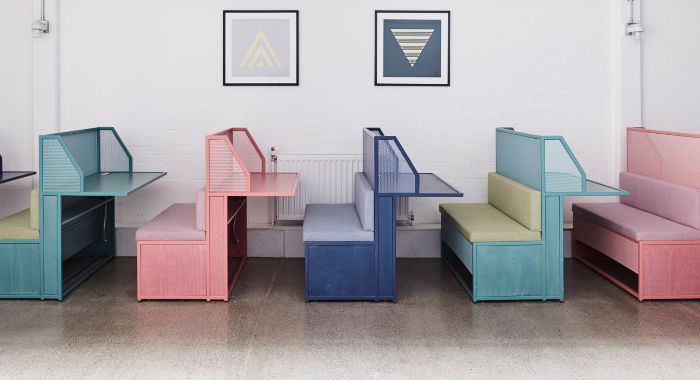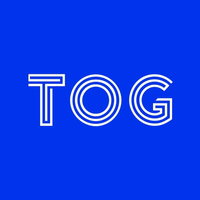Eternal sunshine of the freelance mind
More workers in Britain are suffering from stress than ever before. And while flexible entrepreneurship can be a charmed life, it comes with its own pressures. How can you be your own boss and still maintain your wellbeing?
On reading recently that 73% of UK workers experience job- related stress, it was telling that my first thought wasn’t surprise at this huge figure in Britain’s Healthiest Workplace study. Instead, I wondered about the other 27% who apparently glide serenely through the working day. Who are these people and why haven’t I met any of them?
Stress has become so endemic in working life, it’s now a normal state of being. There are various reasons for this: our “always on” working culture (and being surgically attached to our smartphones), squeezed incomes (a depressing recent Resolution Foundation study found the self-employed worker’s average wage is less now than it was in 1995), and uncertainty, both micro (our own job security) and macro (the state of the economy). Small wonder England’s chief medical officer, Sally Davies, reports that the number of workdays lost to stress, depression and anxiety increased by 24% between 2009 and 2014.
On the plus side, all this means that wellbeing in the workplace is finally being taken seriously by the business world: we realise now that just as we go to the gym after work to keep our bodies healthy, we must look after our brains, too. And although working in a shared space can be a much healthier environment than the traditional office, fostering flexible, collaborative ways of working, there are wellbeing issues specific to freelancers and start-ups.“I went from working nine-to- five to going freelance and suddenly working 12 hours a day,” says Marija Butkovic, a corporate lawyer turned freelance digital marketing and PR strategist, who works at the Whitechapel High Street building. “I work on the weekends. Yesterday I worked until late evening, went home, cooked for me and my husband, then did another few hours. It can be really challenging.”
This is something that Kate Taylor, the wellbeing expert from upcoaching.co.uk and a guest speaker at the recent Female Founders event at the Gridiron Building, keeps seeing. “The biggest problem among my clients is a long, unstructured working day. People come from a traditional corporate career, where they’re used to fixed hours, into a world with no structure at all,” she says. “You feel like the more you work, the more you’ll earn, but that’s not always true, as you’re not necessarily being more productive. The key is to work smarter, not harder.”
Kate suggests tuning into the circadian rhythms of your body clock to pinpoint when you are most productive, and to plan your workday accordingly. So if you’re a morning person, start early and finish early, doing the hardest tasks first and saving the easy stuff, such as clearing your inbox, for later on, when you’re tired.
"You think the more you work, the more you’ll earn. That’s not always true, as you may not be more productive. The key is to work smarter, not harder"
Take control
You can also boost productivity by switching off notifications, so you don’t down tools every time you get a message, text or call. Research shows that every time we’re interrupted, we spend 10-20 times the length of that interruption getting back to the job in hand. The key is to ensure you’re controlling your tech, not letting your tech control you.
One TOG member has taken a radical step on this front. East Side King’s Cross resident Sam Brownfield, a co-founder of thelifehouse.co, a personal finance company for millennials, says: “It can be hard to switch off; often mentally you never leave the office. I was watching my kids play football one Saturday, but kept getting drawn into messages on my phone, then thinking about work all weekend. So I’m trialling giving up my smartphone. I now have an old Motorola flip-top that can only call or text. I’ve found it incredibly liberating.”
Another stress trigger for self-employed people is not taking properly defined holiday — and I speak as someone who’s taken work calls everywhere from a rollercoaster at Drayton Manor Park & Zoo (kids not impressed) to a yoga retreat in rural Portugal that wasn’t supposed to have mobile reception (yogi not impressed). Kate Taylor says: “Block out days off in your diary, just like you’d fill out a holiday form in a traditional job. Or start with a half-day if that feels more manageable. Get strict with yourself. If you don’t give yourself breaks, if you’re not emotionally and physically fit, you won’t be able to work. Stress can put a huge strain on the body, including lowering the immune system, and if you’re self-employed you can feel unable to take time off when ill because you don’t get sick pay.”
"Go outside, look up at the sky. It literally gives you space to think. If you need to trick your brain into downing tools, tell yourself it’s strategising time"
A change of scenery
For some, the open-plan nature of shared offices can be problematic. Marija Butkovic says: “There can be distractions when you’re trying to concentrate — people listening to background music, watching videos, talking on the phone or to each other.”
Tony Crabbe, the business psychologist and author of Busy, says of co-working spaces: “Background noise can be energising: you see people around you working and achieving. Plus, with everyone working on their own businesses, you get the nice office banter without the office politics.” But, he adds, sometimes we all need a change of scene to boost productivity. To this end, Tony encourages workers to move around during the day, from desk to sofa to meeting room to quiet corner to outside and beyond. “We underestimate the effect our environment has on our thinking. It’s unrealistic to think we do all tasks well in the same place. Work out where you do your best deep thinking, whizz through your inbox, write reports and so on, and switch locations accordingly.”
Kate Taylor stresses the importance of stretching your legs and taking a lunch break: “Go outside, look up at the sky. It literally gives you space to think. If you need to trick your brain into downing tools, tell yourself it’s strategising time and that you’re still working.”
The freedom factor
While being self-employed does have its wellbeing challenges, the flipside is, of course, the great flexibility. “I’ll never be able to shut down my computer at 6pm and disconnect, but I have such freedom and that’s how I want to live,” says Marija Butkovic. Tony Crabbe points out: “Being self-employed can create a higher stress level because the fears and demands are greater than when you work for a corporation. The counter to that is, if you work for a company, you don’t have to be enthusiastic; if you’re freelance, you have to love your work. It’s a survival mechanism. And it’s far nicer living a life where you love your job and you’re in control.”
Once you realise that you and only you are the one shaping your job, your wellbeing and your life, that’s an empowering thing. Maybe it is possible to be one of the enigmatic, unruffled 27% after all.
Apps to boost your work wellbeing
Clear your mind
Big corporations take mindfulness seriously, and so should you — it’s brilliant for stress reduction. Calm is wellbeing expert Kate Taylor's favourite. You can choose guided meditations that vary from two to 30 minutes, with a choice of tranquil natural backdrops and relaxing soundtracks. calm.com
Get organised
It’s an oldie but goodie: Evernote collates all your lists, notes, bookmarks, etc, in one place, so you’ll never waste time scrabbling around under your desk looking for that vital Post-It again. Basically, it’s the contents of your brain in app form. evernote.com
Stretch yourself
Yoga practitioners swear that however highly strung they are on arrival at class, they never fail to float out at the end. The Yoga Studio is a great at-home app. You choose your skill level and duration (they start at 15 minutes), and each workout comes with a video and teacher commentary. yogastudioapp.com
Wage war on email
Unroll Me transforms your inbox from terrifying to tranquil. It divides incoming emails into three categories: Keep (the important stuff), Unsubscribe (the dross), and Roll Up (the vaguely interesting stuff, which it collates into one daily newsletter). A brilliant time-saver. unroll.me/app
www.theofficegroup.co.uk
To get in touch, contact Eva:
eva@theofficegroup.co.uk
0203 773 1880

